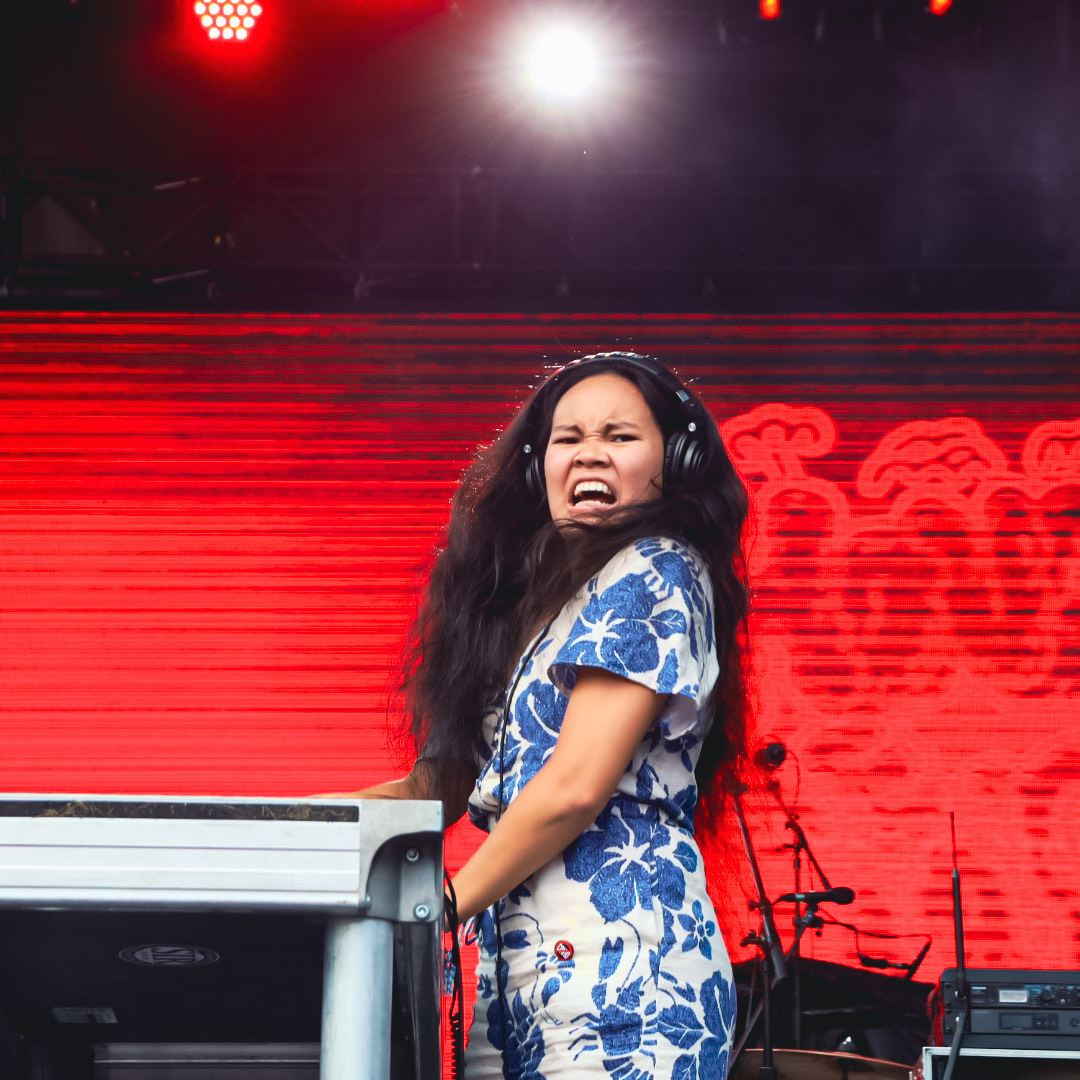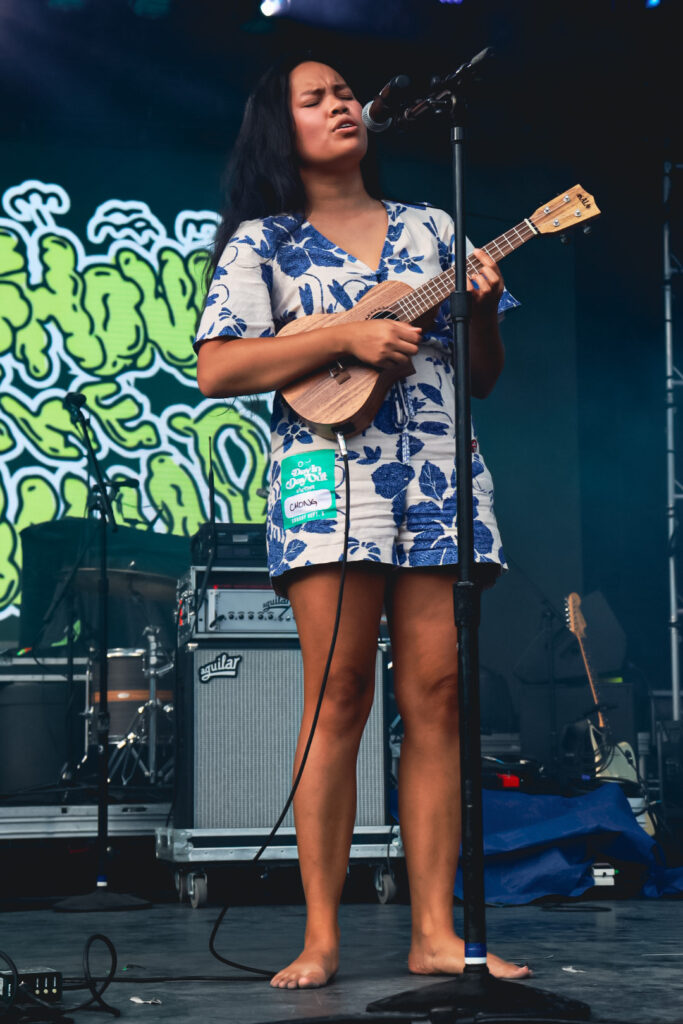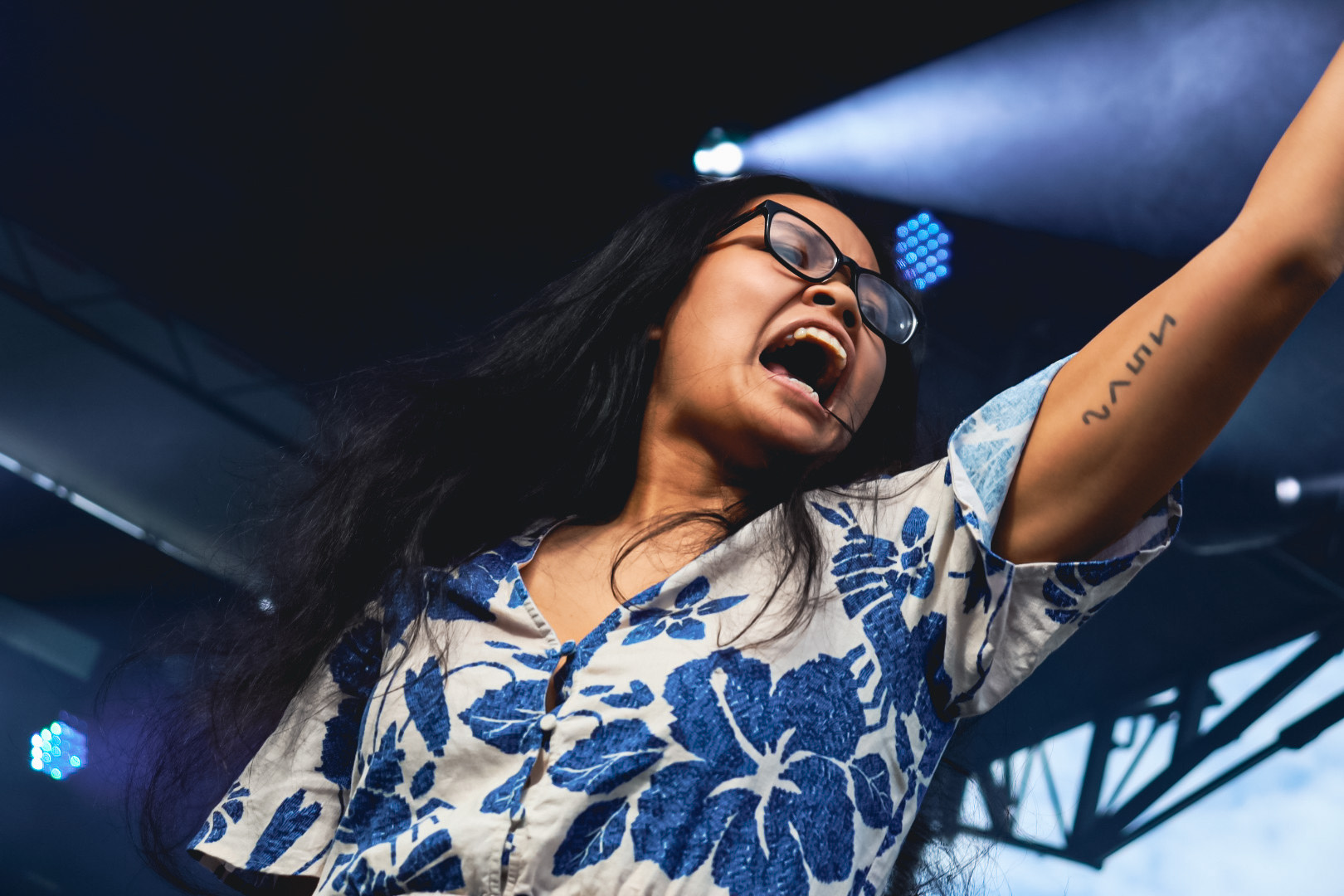While many artists pushed through the social distancing with innovative new virtual concerts and live streams, there is nothing quite like the energy and experience of live music – for artists and fans alike. “My number one thing is making music that will make people’s ass quake on the dance floor,” Alda Agustiano, aka Chong The Nomad, a DJ, producer, and musician tells RIZE. “’When that was gone, it depleted me. There was no creative energy.” Agustiano says that without a publishing deal that kept her busy twice a week, “I would’ve just sat in bed and melted away.”
Fortunately, the production Gods had bigger plans for Agustiano. Plans that landed her at the red carpet world premiere of “Shang-Chi and the Legend of the Ten Rings”, Marvel Universe’s first major Asian superhero film. Agustiano was part of the production of the first single for the movie, “Lazy Susan” ft. 21 Savage, Rich Brian, Masiwei, & Warren Hue.
The realization of just how monumental this moment was didn’t hit Agustiano until she was heading into the theatre and realized that she was surrounded by people who looked like her. “Eighty percent of the people there were Asian and we’re in the middle of Hollywood Boulevard,” Augustiano says. “I was really proud to be a part of that.”
Agustiano went to Cornish College of the Arts for film scoring, so this was a major full-circle moment for her. The pandemic allowed her to pivot from making music for a live audience to making music for film fairly seamlessly.
She also wrote the original song, “Forward,” for the tv show “Modern Love,” which ended up being incredibly meaningful to her as a queer woman of color. “Queer representation in mainstream media is still abysmal,” Agustiano says. “What we have, in my personal humble opinion, I would say 20% of it is really something I can watch and be engaged with.”
Agustiano feels that much of the tv and film that includes queer folks is tokenistic but when she watched the season 2 episode she was meant to write the song for, she was pleasantly surprised. “A lot of people can’t get teenage dialogue correct. This blew it out of the water for me. So, the song came really easily. It was a really good moment for me.”
Agustiano performed an acoustic version of “Forward,” for Day In Day Out.
TV and film have played a huge role in who she is as a DJ and producer as well. The anime “Avatar: The Last Airbender” influenced Agustiano’s interest in film scoring during her early teens. In fact, her stage name comes from a minor character in the second episode of the second season named Chong who happened to be a nomad who played the lute and sang. Agustiano played the ukulele in high school and saw a bit of herself in this character, so Chong The Nomad was born.
“[Anime] revolves around music,” Agustiano says. “A lot of the scores of these animes are very lush. They provide so much atmosphere. That’s where I take a lot of my inspiration from.”
Anime suggestions from Chong The Nomad: Cowboy Bebop, Fullmetal Alchemist, (Brotherhood only though), Ouran High School Host Club, Michiko & Hatchin

As a performer, Agustiano’s energy reverberates far beyond the stage. Her voice, presence, and intoxicating energy were felt clear up into the nosebleed VIP section at Day In Day Out. What looked like a sparse crowd for her early set on Sunday, quickly transformed into a major crowd with attendees coming closer from all sides to be a part of the unique Chong The Nomad experience.
Looking at her on stage, you would never know that it had been over a year since she had played a live set or that she deals with major anxiety before she goes on stage. She revealed that she puked before her Capitol Hill Block Party set one year but an artistic hero of hers, Freddie Mercury, helps her get past those nerves most days.
“Whenever I’m way too nervous for a set to the point where I can’t stand or I’m just gagging backstage, I watch Queen’s Live Aid set from 1985,” Agustiano says. “I watched that and that makes me feel so much better because if one man could just make the entire world shut the fuck up and listen to him like that, I’ll be fine. He performed in front of 2 billion and had everyone in his hands. That’s what I take inspiration from.”
Mercury was a bi-sexual man who never openly came out, likely because of the existing stigma. This is something that Agustiano can relate to in her own way. As a queer Indonesian woman, part of her identity is dismissed or explicitly despised by parts of her family.
“I want to respect my elders and still be courteous to how they feel,” Agustiano says. “All throughout their life, [being queer] was just a no-no. You do not do that. You don’t even look at that. You don’t even think about that. So it’s hard. It’s hard to change that mindset.”

Agustiano has been told to be “less queer” and to stop making her queerness her identity by those who struggle to accept her full identity. Unfortunately, this is a common request made to many LGBTQ+ folks. “We’re not making it our identity,” Agustiano says. “I think the most important thing as a queer artist of color is representation. What makes it onto the dance charts is so dominated by basic white men. Variety is so important in dance music. Stop fucking putting abusers and the same three white dudes on the headlining electronic sets. All these festivals are coming back and you see the same headliners over and over and over again. It’s infuriating”
Agustiano is referring to the many stories that have come to light over the last few years about major electronic artists who have been accused of sexual assault, rape, and even sex trafficking including Bassnectar, SNAILS, Diplo, Datsik, and Graves. Agustiano expressed frustration over the opportunities afforded to white men in the electronic music world when there are so many incredibly talented women of color who aren’t acknowledged.
“Why do these guys have opportunities?” Agustiano says. “Representation just matters so much and bringing other people up with you.”











